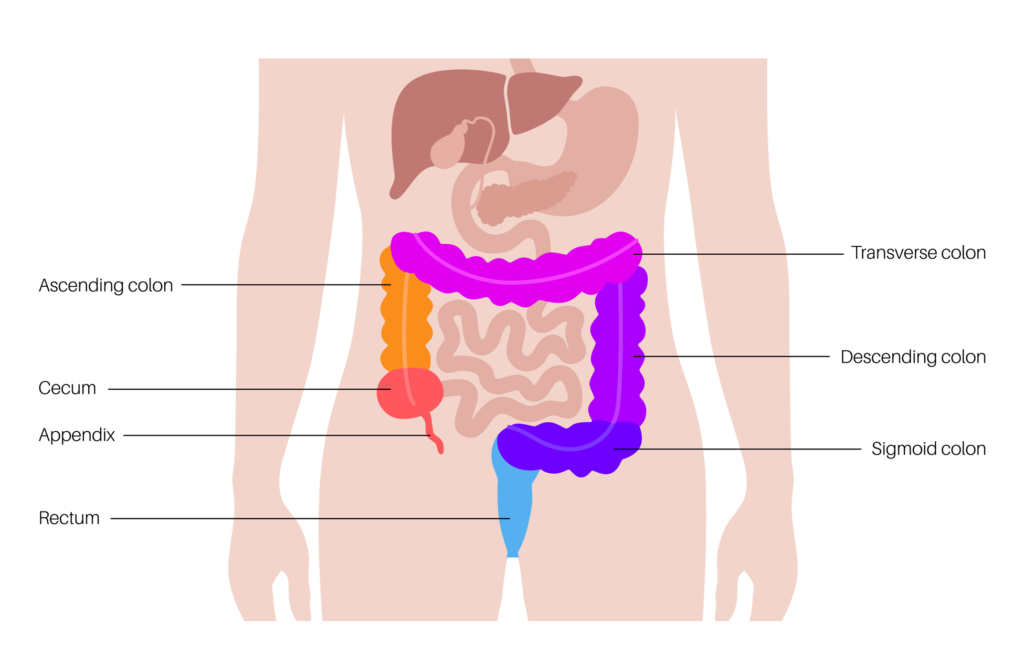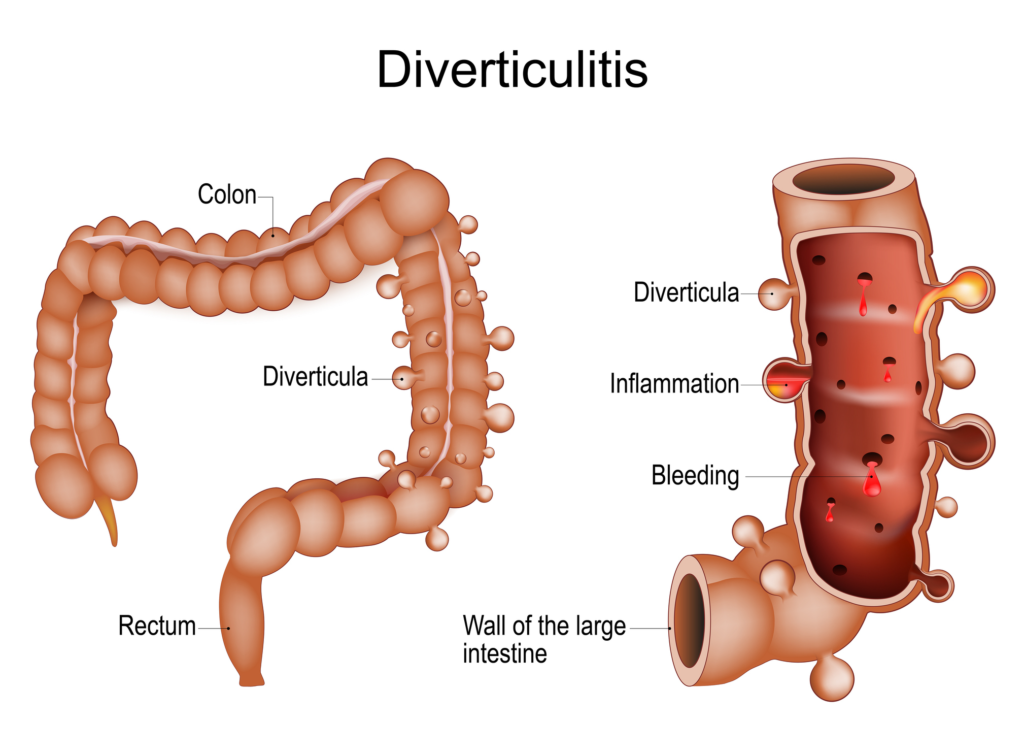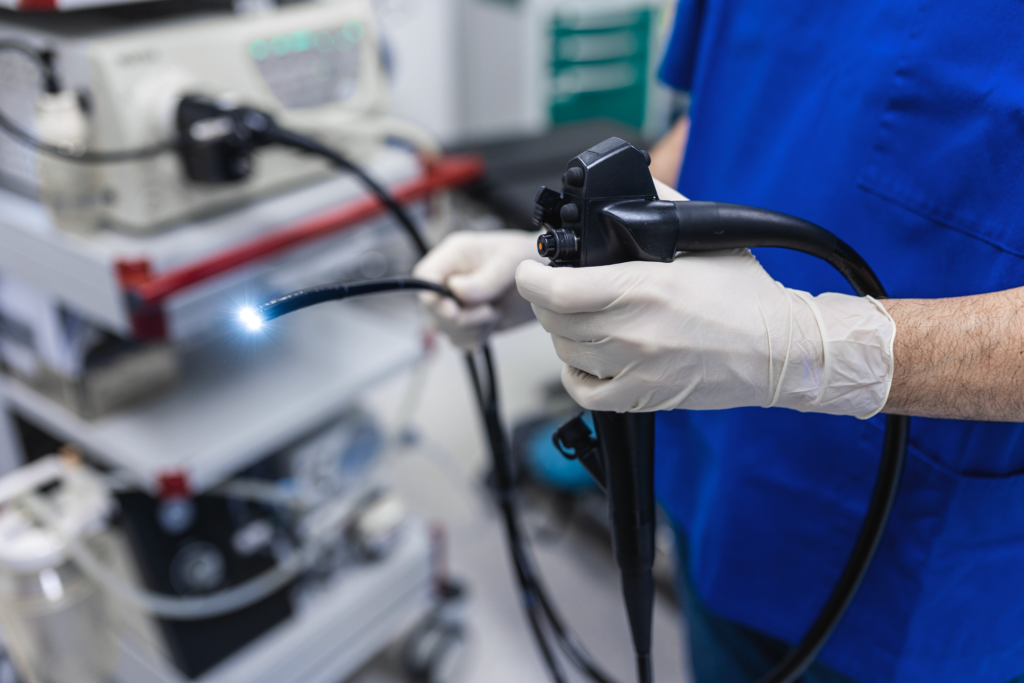Don’t let fear or uncertainty stop you from getting a colonoscopy. This comprehensive guide covers everything from preparation to procedure and recovery, making it an essential read for anyone considering this test.
It’s normal to feel a mix of fear and confusion if you’ve been told you need to have a colonoscopy. It is mostly because most people don’t know what to expect.
By breaking down each step of the process, this detailed guide will walk you through what you can expect before, during, and after your colonoscopy. It will help you feel prepared and confident every step of the way.
What is a Colonoscopy?
A colonoscopy is an important medical procedure in which doctors, typically gastroenterologists, closely examine the lining of your colon and rectum, which are part of your large intestine.
During the procedure, a colonoscope (a long, thin, bendable tube with a camera and light at its tip) is gently inserted through the rectum. The camera provides a clear view of the colon’s inner lining, which helps find problems and overgrowth of the intestinal wall.
 Large Intestine (Credit: iStock)
Large Intestine (Credit: iStock)
Why is it done?
Colonoscopy is an important tool in modern medicine to prevent and detect disease. It is a life-saving procedure, effective in diagnosing and treating both cancerous and non-cancerous disorders.
Adults should get regular colonoscopies starting between the ages of 45 and 50. They should continue these screenings until age 75, depending on their personal or medical conditions. Factors like family history, personal health history and lifestyle factors could increase their likelihood of developing colorectal cancer or other related diseases.
Colorectal cancer is best treated when it is found early, so this procedure is very important. It can even keep you from getting cancer by getting rid of growths that aren’t cancerous yet.
Colonoscopies are also used to find many digestive problems, such as

- Diverticulitis, which are swollen pouches in the digestive system
- Irritable bowel syndrome
- Constant stomach pain, cramps, or gas
- Indigestion that doesn’t go away
- Changes in your bowel habits, like chronic constipation or diarrhoea
- Poop that’s constantly not the normal colour or looks different from other poop
- Blood in your poop
- Weight loss that you can’t explain
- Internal bleeding
- Hemorrhoids (piles)
- Inflammatory bowel diseases, such as Crohn’s disease and ulcerative colitis
- Having strictures (narrow parts of the stomach) or
- Ulcers (sores)
How do I prepare for a colonoscopy?
Preparing for a colonoscopy often brings a whirlwind of emotions because of its importance in colorectal cancer screening. One of the best ways to manage these feelings is to adhere closely to your doctor’s advice.
Though the process takes less than one hour, many things must be done beforehand. Your doctor will break it down day by day, which can make the process seem more manageable.
Start Early
Getting ready for the test at least two weeks ahead of time will help you make sure you know what to do with your food and medications.
Health Conditions and Medications
It’s very important to talk to your doctor about your medical background, especially if you have
- Diabetes,
- Hypertension,
- Heart, kidney, or vascular problems,
- A history of bleeding disorders
- Require blood thinners,
- Have other serious medical problems or
- If you are pregnant or think you may be pregnant
You should only stop taking your medicines or change the amount you take if your doctor tells you to. It is very important to inform your doctor about all your medicines, even over-the-counter ones, herbal supplements, and vitamins.
Other essential preparations
- Dietary Adjustments: Follow guidelines on what foods to avoid.
- Hydration: Increase your water intake.
- Cleansing Solution: Take the prescribed solution to clean out your colon.
These preparations are fundamental for a successful colonoscopy.
What happens during a colonoscopy procedure?
A doctor or nurse puts an intravenous needle, also called an IV, into a vein in your arm or hand. This IV allows them to administer pain medicine, sedatives, or anaesthesia. It helps you relax during the test, and you might even fall asleep.

During the test, you’ll lie on a table as the doctor inserts a colonoscope through your anus, and into your rectum and colon. The doctor may move you several times on the table, so that they can see better through the scope.
What happens after the Procedure?
- The anaesthetic or sedatives used during a colonoscopy take some time to wear off. After the test, you will need to spend 30 to 60 minutes at the hospital or rehab centre.
- You might feel cramps or bloating in your stomach for the first hour after the test.
- When you’re no longer asleep or tired, your doctor will tell you or a family member or friend what they saw and what to do next.
- You won’t be able to drive, so you’ll need your planned ride home.
- After a day or two, you should fully recover, and be able to eat normally again.
- If you had a biopsy or had polyps taken out, your doctor might tell you to follow a certain diet for a day or two. This is to give your bowels some time to heal. Your doctor will explain what to expect, and what you can and can’t eat or drink.
When are the results available?
If the colonoscopy goes well and no tests are needed, the doctor can tell you right away that everything looks fine. The official reports from the lab will take several days that will tell you if you have cancer or not.
Potential Side Effects and Risks
Colonoscopy is generally safe, but like all medical procedures, it carries some risks. These can include
- Reactions to the sedative,
- Bleeding from where a polyp was removed, or
- In rare cases, perforation (a hole) in the colon wall.
You should contact your doctor after a colonoscopy if any of these happen.
Final thoughts
It might seem uncomfortable to have a colonoscopy, but it’s a procedure that could save your life. Remember that the discomfort of getting ready for the treatment is nothing compared to the important information it gives you about your colorectal health.
By being proactive about colorectal health, you can stay informed, be ready to take control of your health.
Further reading
For more detailed information, consult these resources or speak to your doctor.
- https://www.ncbi.nlm.nih.gov/books
/NBK559274/#:~:text=It%20can%2
0be%20used%20for,gastrointestinal
%20bleeding%2C%20and
%20colonic%20impactions
- https://www.health.harvard.edu/
staying-healthy/understanding-the-results-of-your-colonoscopy
- https://www.medicalnewstoday.com
/articles/colonoscopy#what-age
- https://www.medicalnewstoday.com
/articles/321930
Disclaimer
The information provided in this article is for educational purposes only, and should not be considered as medical advice. Consult a healthcare professional for personalized diagnosis and treatment.





